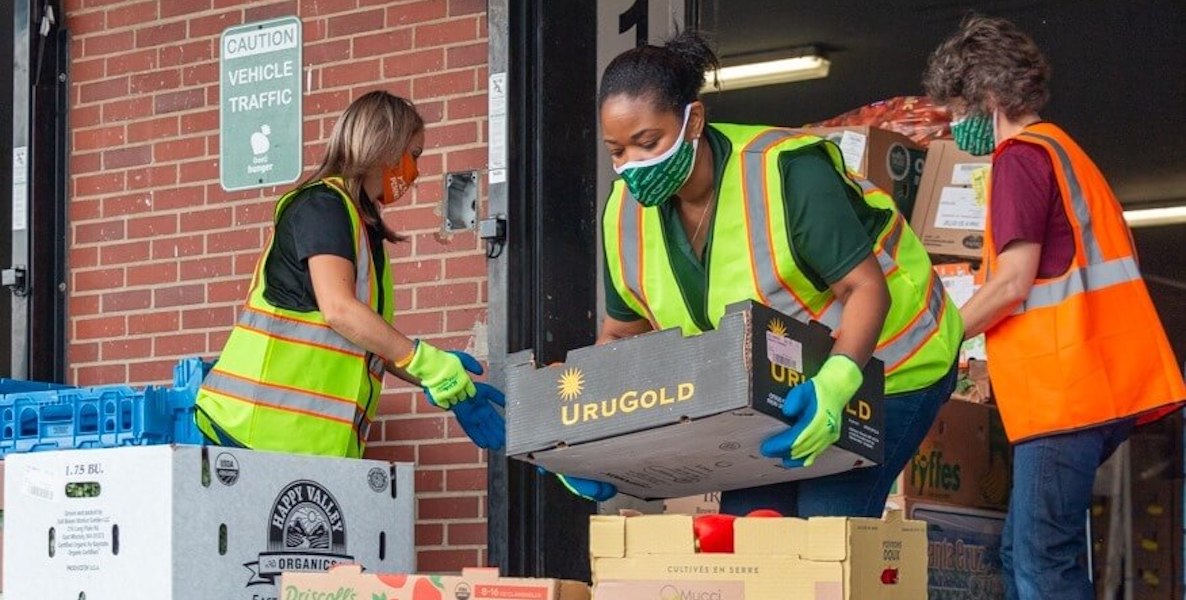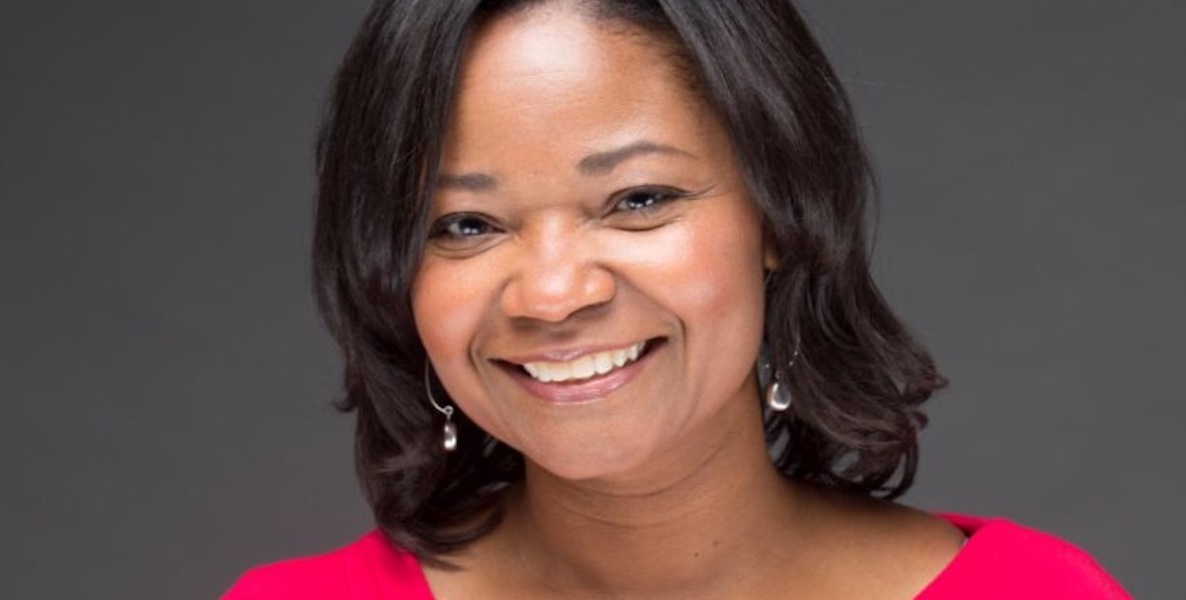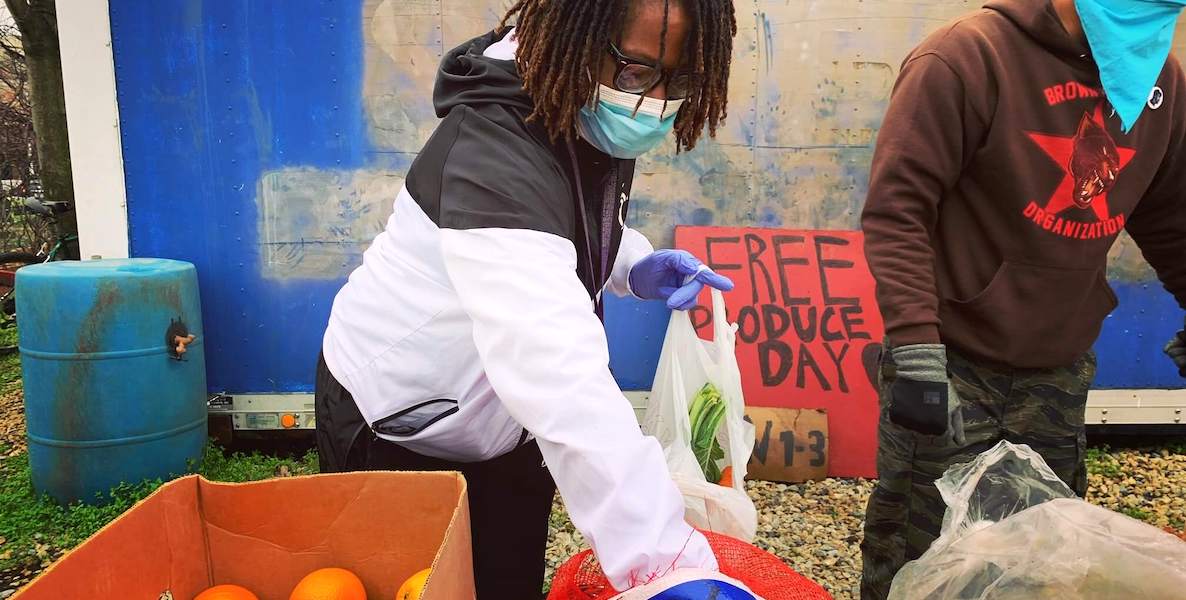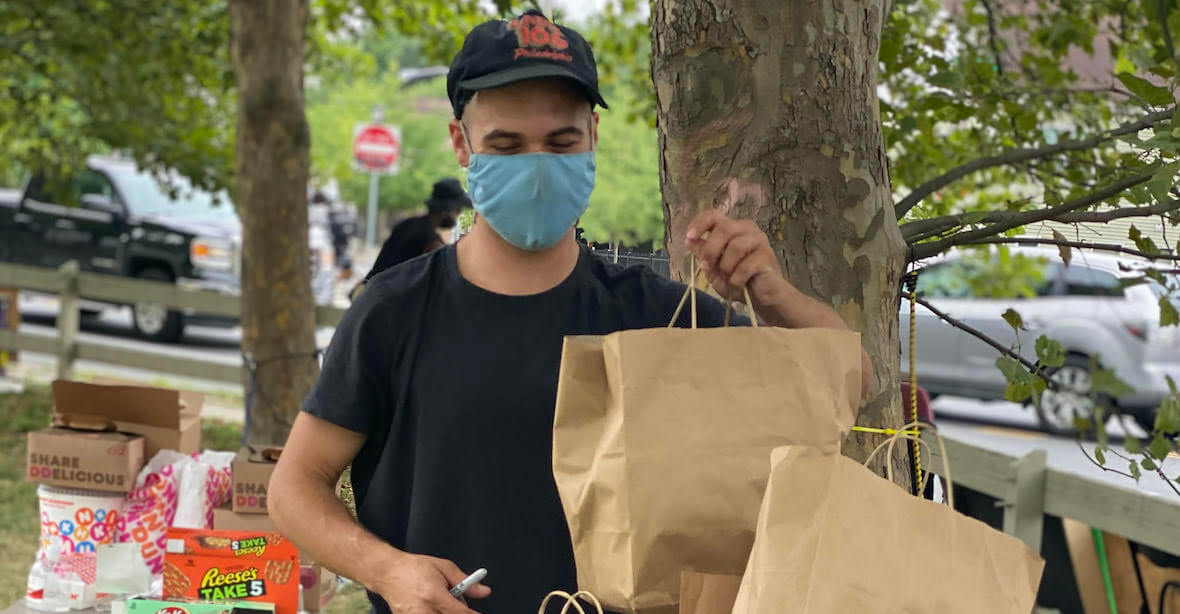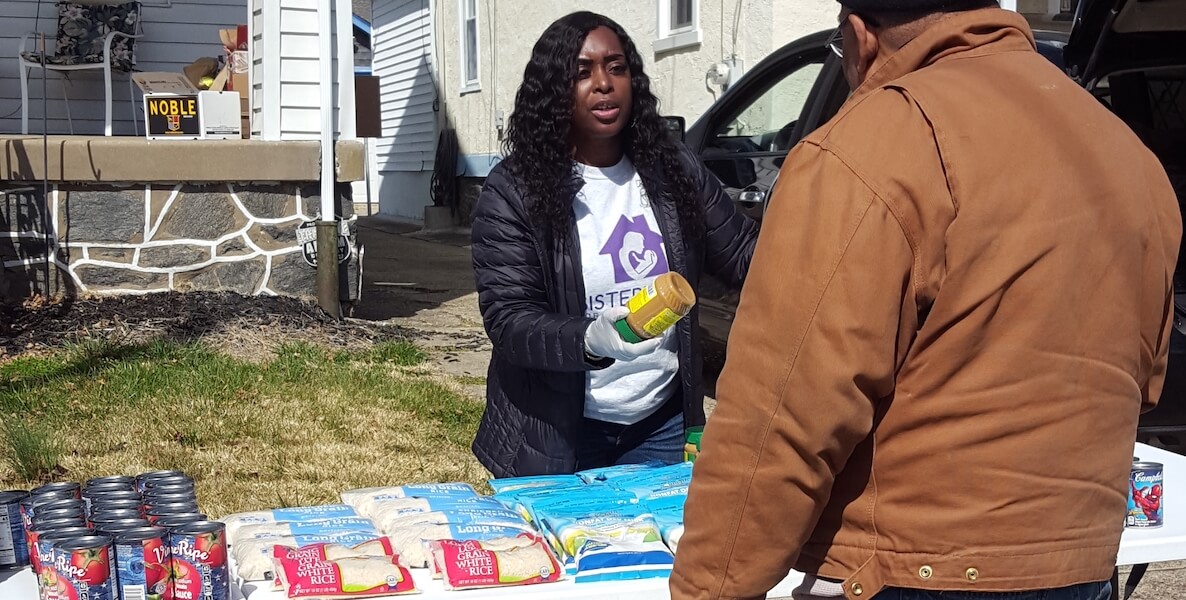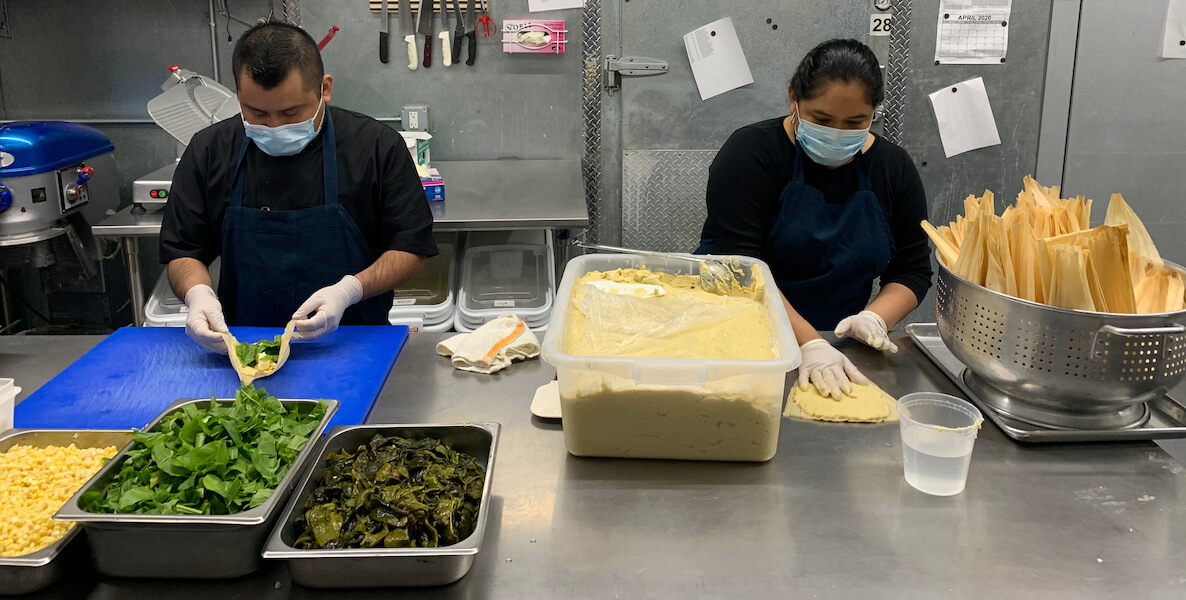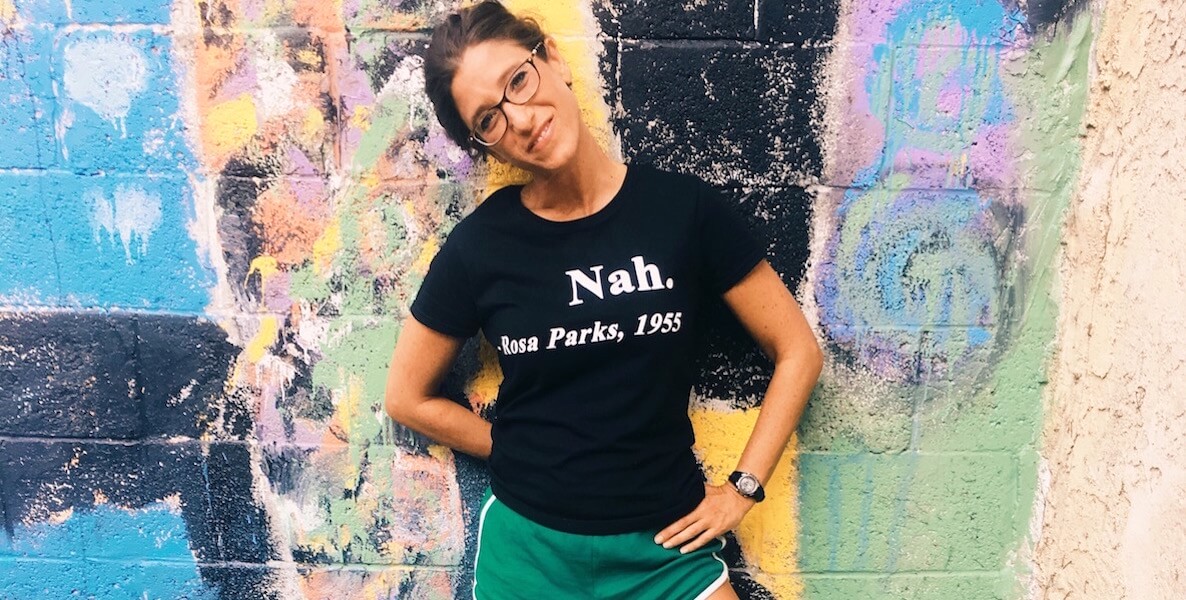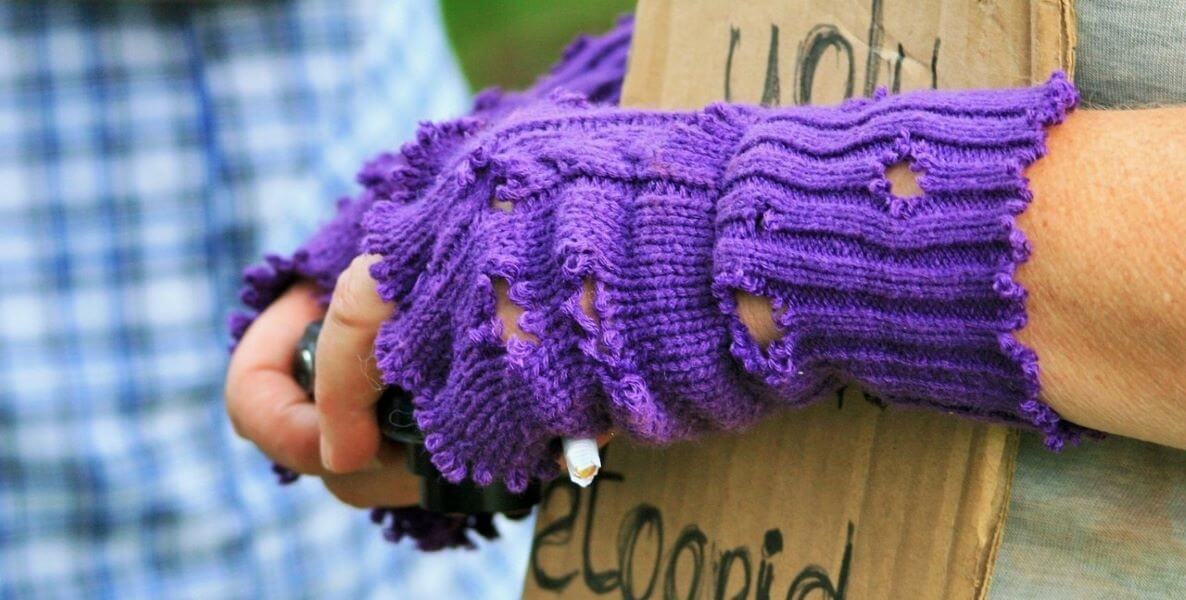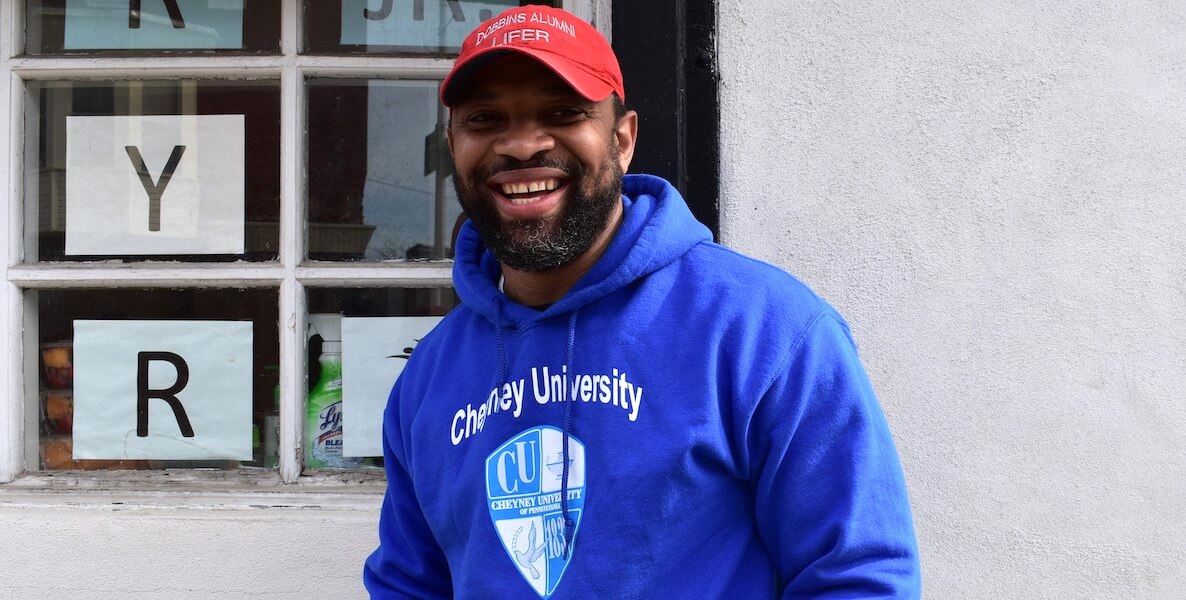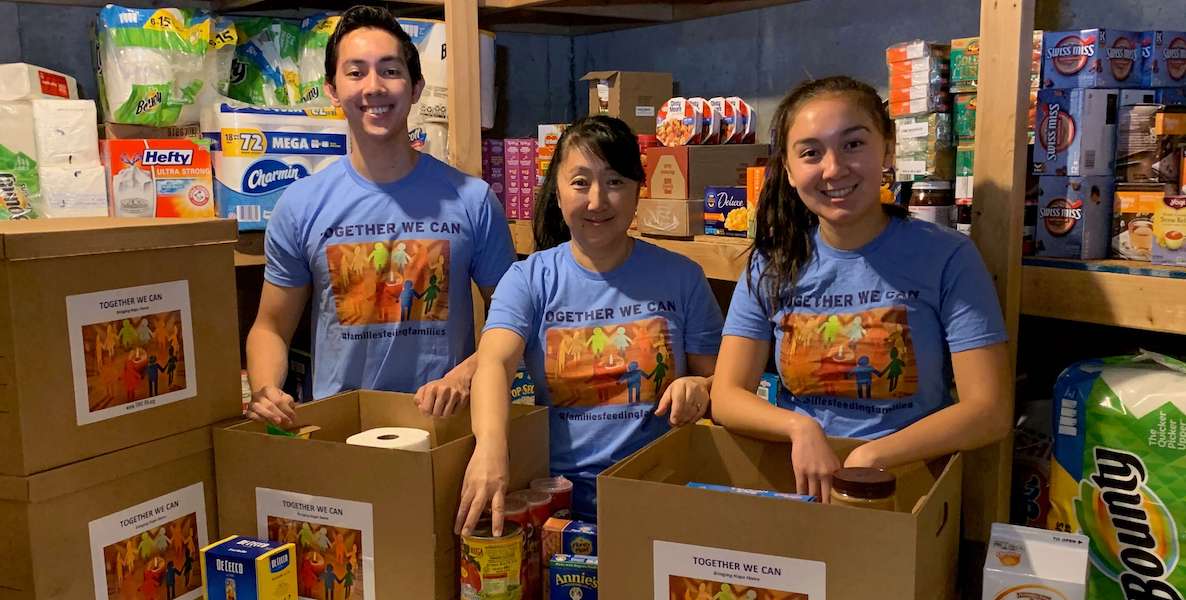![]() Back in May, Lancaster Farm Fresh (LFF), a nonprofit, organic cooperative located in Lancaster, applied for and received a grant from the USDA to create 320 boxes of fresh fruits and vegetables and dairy products for people experiencing food insecurity in Philadelphia. But they needed help getting the food where it needed to go.
Back in May, Lancaster Farm Fresh (LFF), a nonprofit, organic cooperative located in Lancaster, applied for and received a grant from the USDA to create 320 boxes of fresh fruits and vegetables and dairy products for people experiencing food insecurity in Philadelphia. But they needed help getting the food where it needed to go.
That’s when they called Stephanie Sena.
Sena, as you may recall, is the Villanova professor who, since 2011 has operated the Student-Run Emergency Housing Unit of Philadelphia, and has proposed a community of tiny homes to help alleviate homelessness in the city.
She immediately rose to LFF’s request. Every Friday morning at 10am since May 15, a huge truck from LFF parks in front of Sena’s front stoop in Queen Village and unloads the boxes of produce. Her crew of 25-odd volunteers then drive by throughout the day, load up their trunks with five to 10 boxes, and deliver 320 boxes of healthy, nutritious food to the doorsteps of people all over Philadelphia.
With her plan to continue the initiative through the end of August, that will translate to 5,120 boxes.
Recognizing and breaking down barriers
Historically, Sena explains, the most common mechanism for getting free food to people who are food-insecure is by having them come to a central distribution place, like a food bank or a church. But that structure, despite its best intentions, comes with two main barriers.
The first: transportation, which presents hurdles insofar as cost, time and access.
Second: the pandemic, which makes taking public transportation a bonafide health risk for many. And, she adds, a public food distribution site “serves as a mechanism of public shaming because… you’re making your poverty public.” There’s also always the possibility that there won’t be enough food. “And that,” she says, “is a massive waste of time and resources.”
![]() “My goal was to get the food directly to the doors to the people in need, as opposed to asking people who are hungry to come and wait in line,” Sena says.
“My goal was to get the food directly to the doors to the people in need, as opposed to asking people who are hungry to come and wait in line,” Sena says.
When she first signed on to the initiative, she started by contacting members of City Council to determine which of their constituents were in need of food. She then spread the word on Facebook that she needed drivers—lots of them.
People were responsive. In a matter of two days, she created an efficient system that required no waiting, cost, or health risks. Every week, she loads boxes into her volunteers’ trunks with a list of addresses and sends them on their way.
Filling the boxes with nutrients 🥦
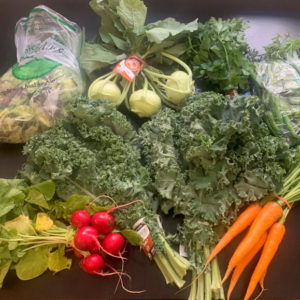
The boxes are filled to the brim with healthy foods—carrots, cucumbers, spinach, kale, lettuce, Swiss chard, apples—with enough to feed a family of four for a week. “Nutrients are expensive,” says Sena, “When you’re already vulnerable and economically struggling, it’s even more important you have as many nutrients as possible.”
Sena knows: She was a recipient of an USDA box back when the city first went into quarantine. “I raise two children working on an adjunct [professor] salary,” she says. Her public speaking gigs were also hard to come by. “I was hemorrhaging money like a lot of other people,” she adds. But the food inside the USDA box was a far cry from the fresh produce of Lancaster Farm Fresh.
“The box contained a large can of meat—like a can of tuna fish. Also a bag of dried potato flakes to make into mashed potatoes,” she says. “It was inedible. Like space food. The fact that the USDA switched from funding these crap boxes to sponsoring local farmers to harvest fresh fruits and vegetables—it’s a major shift.”.
“Poverty is a robbery”
The impact of her personal experience is largely what inspired her out-of-the-box thinking. “We need more creative thinking about how we break down barriers,” she says. “Having firsthand experience informed how I think about solutions.”
Exploring solutions to income inequality, poverty, and food insecurity—complex problems that are deeply rooted in unjust and corrupt systems—is at the heart of the work Sena has been doing for years.
![]() She spends her days educating young people about these issues at Villanova Law School, in her courses on poverty and policy. She is also the recipient of the Anti-Poverty Fellowship at Villanova University, where she engages in research regarding solutions to eradicate poverty, teaches courses in poverty and policy, and generates proposals to fund data-driven analysis of poverty challenges.
She spends her days educating young people about these issues at Villanova Law School, in her courses on poverty and policy. She is also the recipient of the Anti-Poverty Fellowship at Villanova University, where she engages in research regarding solutions to eradicate poverty, teaches courses in poverty and policy, and generates proposals to fund data-driven analysis of poverty challenges.
And she still runs SREHUP, a nonprofit she helped found as a way to engage her students in making a difference. Since 2011, the organization has served approximately 400 people in a winter shelter run out of the basement of a church in Center City.
“Poverty is a robbery. And there are looters who are benefitting from it,” Sena says.
It’s a phrase—poverty is a robbery—that Sena often has her students repeat, to emphasize the relationship between poverty and the people experiencing it.
She wants her students to reprogram how they think about poverty as a fundamental issue. Poverty isn’t “a sad story,” as Sena says, or about “… a white hero who’s going to save the sad people.” Poverty is not just something that falls upon unfortunate individuals, and Sena resents when the media frames it as such.
“We need to look at a poverty story as more of an investigation, because it’s not just about who is struggling and why,” she says. “It’s about who is benefitting,”
Some 12 million people across the U.S are categorized as “working-poor,” meaning they are employed but living below the national poverty line, according to PolicyLink. In Philadelphia, 400,000 people—more than a quarter of the population—live in poverty.
![]() Melissa Monts, who lives in Northeast Philly with her service dog, Ambassador, worked as a Lyft driver, which gave her just enough money to get by. Then a car accident gave her an immobilizing back injury, and she can’t drive. Instead, she survives on federal disability and SNAP benefits, while applying for loans to purchase a car to start driving Lyft again.
Melissa Monts, who lives in Northeast Philly with her service dog, Ambassador, worked as a Lyft driver, which gave her just enough money to get by. Then a car accident gave her an immobilizing back injury, and she can’t drive. Instead, she survives on federal disability and SNAP benefits, while applying for loans to purchase a car to start driving Lyft again.
Monts, 45, really loves lentil soup—she makes a fresh batch every week that lasts her four to five days. She likes to garnish her soup with fresh vegetables, but her access to good produce had been virtually nonexistent for months—until she started getting Sena’s weekly delivery boxes. Now, her volunteer driver even adds fresh mint from her own garden every week to the delivery.
Sena recognizes this isn’t, and shouldn’t be, the long-term plan. “There are things that are needed in an emergency that lower the access barriers,” says Sena. “Giving out boxes is one tool in the toolbox when it comes to fighting for economic justice. It’s important, it’s necessary—but it’s not the solution,” she notes.
A village of tiny houses
While another USDA grant to LFF is not guaranteed beyond August, Sena says she’s determined to find another food supplier and make it work; she’s already received an offer from a local business owner to operate out of their storefront.
That same spirit also guides Sena’s continued work to pave the way for a village of tiny houses on a 1- to 1.5-acre lot, grounded in the idea that community is what people experiencing housing insecurity really need to thrive and become upwardly mobile, in addition to affordable housing.
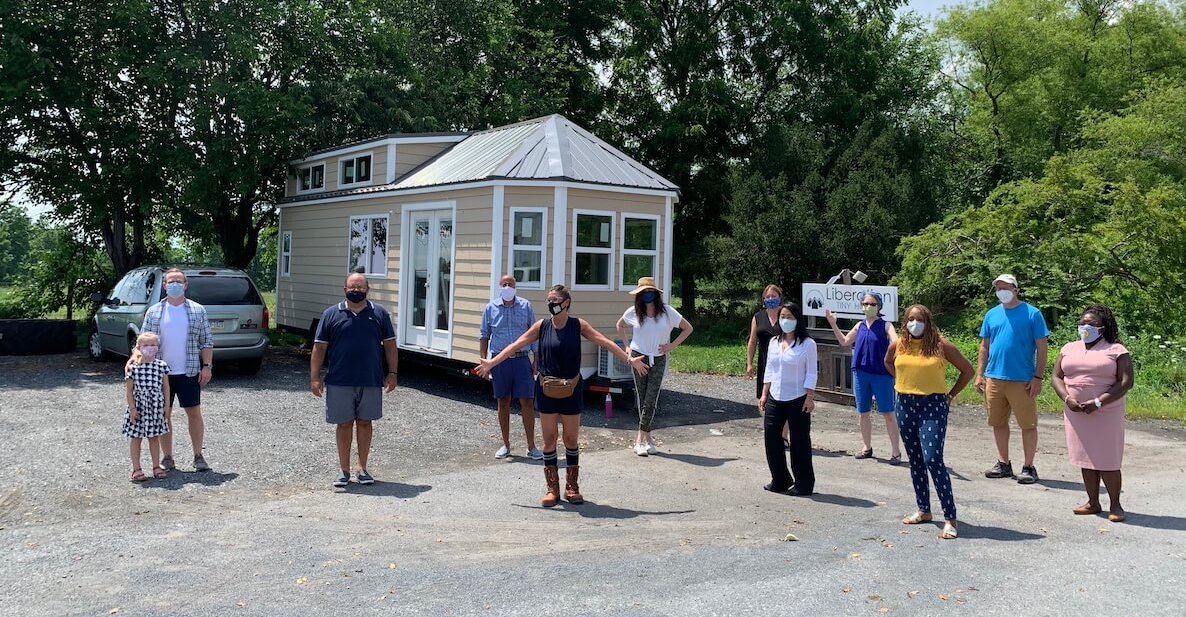
Job training, social resources, even a community garden are all part of this innovative housing solution that has begun to pop up across the country in cities like Nashville, Dallas and Seattle. And the homes are really nice, too.
Prior to the pandemic, Sena says that the plan was always to move forward with the tiny homes initiative, but current zoning laws make it difficult to legally operate tiny homes on Philadelphia land.
In a sign of promise, during their last Zoom session before summer break City Council passed a resolution accepting almost $9 million from the federal government to be used towards housing solutions. While Sena says that all of this money isn’t necessarily going towards a tiny home initiative, or SREHUP, it’s a hopeful sign: “The people that create the laws are saying that we feel this is necessary. The City is making a promise that obstacles will be overcome,” she says.
To further this momentum, last week Sena took a field trip with several Councilmembers to the tiny homes manufacturing plant in Lancaster County to show them six finished houses, meet the builders and “collectively figure out how we can bring this to Philadelphia,” says Sena.
There was also a funder present who offered $2 million to help build the houses. While no one made any commitments, there was a palpable sense of urgency and drive to further explore the option.
Sena is working with City Council and the head of Licensing and Inspections to adopt amendments to the International Residential Code (IRC) to allow for the building of tiny homes in Philadelphia.
She’s also working with Dan Fitzpatrick, the president of the Tiny Home Industry Association, which works with cities across the country to amend their building codes for this very reason. While “it’s the nitty gritty stuff,” as Sena says, it’s essential work to keep tiny homes moving in the right direction.
“Every time we hit a wall, we go around it or break through it,” said Councilmember Mark Squilla in a Facebook Live event streamed from the manufacturing site. “We’re not going to stop until we have something that works. It’s not how, but when.”
For now, as the pandemic rages on and stability is a given for no one, Sena and her team of dedicated volunteers will continue to serve neighbors in need with the fruits, vegetables, and respect they deserve.
“We still have work to do in getting people to care about their neighbors,” says Sena. “Each one of us is in some way struggling—one antidote to that is to roll up your sleeves and get to work,” she continues. “This does feed hungry people, but it also feeds hungry souls.”
Want more? Check out these stories about other locals fighting food insecurity during the pandemic—and maybe reach out to see if they need volunteers.


